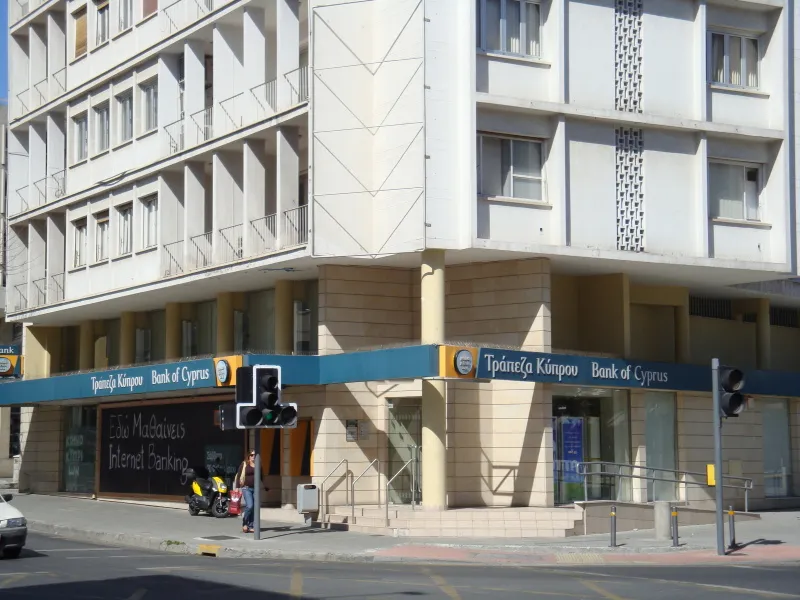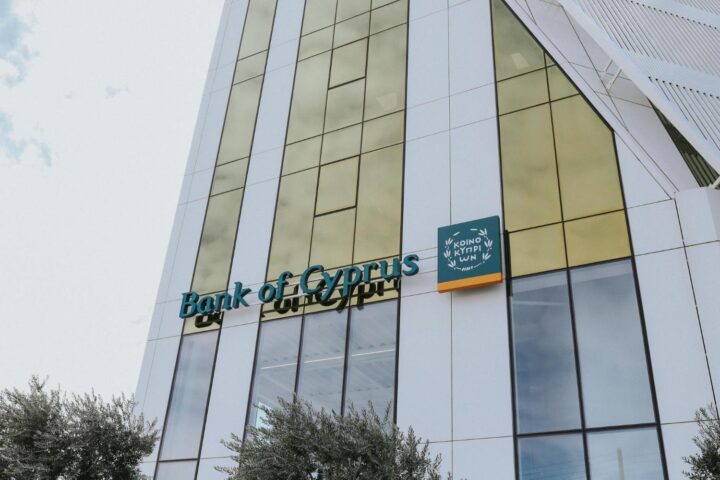The country’s largest banking and financial services group, Bank of Cyprus, posted after-tax profits of €349 mln for the first nine months, substantially improving from the €19 mln loss last year.
Notably, the third quarter of 2023 contributed €129 million to the profit after tax, marking a 3% increase from the previous quarter.
The bank’s robust performance is driven by its Net Interest Income (NII), which experienced a 144% year-on-year increase, reaching €572 million.
In Q3 alone, NII rose by 9% compared to the preceding quarter.
Complementing this, Non-Net Interest Income (Non-NII) reached €224 million, exhibiting a 5% year-on-year increase, covering 90% of total operating expenses.
Despite a 3% increase in total operating expenses year on year, the bank reduced the cost-to-income ratio to 31%, down from 54% in the prior year.
Earnings per share for the first nine months stood at €0.78, including €0.29 in Q3.
The Return on Tangible Equity (ROTE) reached an impressive 24.6% for the first nine months and 25.6% in Q3 2023, stressing the bank’s efficiency in generating value for its shareholders.
Non-Performing Exposure (NPE) ratio was at 3.5%, down six percentage points year on year.
The NPE coverage ratio stands at 77%, providing a substantial buffer against potential credit losses, and the cost of risk is reported at 58 basis points.
The bank’s deposit base remains resilient, with a retail-funded deposit base of €19.3 billion, reflecting a 3% increase year on year and remaining broadly flat quarter on quarter.
The balance sheet retains high liquidity, with €9.6 billion placed at the European Central Bank (ECB).
The regulatory Common Equity Tier 1 (CET1) ratio and Total Capital ratio stand at 15.2% and 20.4%, respectively.
With profits from Q3 2023 factored in net of dividend accrual, the CET1 ratio rises to 15.8%, and the Total Capital ratio increases to 21.0%.
The bank reported organic capital generation of approximately 345 basis points for the first nine months, including around 125 basis points in Q3.
Robust
Panicos Nicolaou, the Group Chief Executive of Bank of Cyprus, expressed satisfaction and confidence as the bank unveiled another quarter of robust profitability.
Nicolaou highlighted the achievement of ROTE exceeding 20% for the third consecutive quarter, underscoring the group’s sustained ability to generate profitability and create shareholder value.
This strong performance was attributed to substantial revenues, with total income reaching €796 million.
He said net interest income accounted for €572 million, more than double the previous year’s level, reflecting the impact of a higher interest rate environment and effective deposit pass-through management.
“Non-interest income, a significant and sustainable contributor to the group’s profitability, covered approximately 90% of total operating expenses.
“The cost-to-income ratio further improved to 31%, driven by higher income, while the cost base remained under control, with savings mitigating inflationary pressures.”
He also said that the Bank of Cyprus continued to support the economy by extending approximately €1.6 billion in new loans during the first nine months.
Nicolaou emphasised the bank’s balance sheet strength: ample liquidity, strong asset quality, and a robust capital position.
He also noted that Moody’s upgraded the bank’s long-term deposit rating to investment grade in October, “marking a new chapter in the institution’s journey towards becoming a strong, diversified, well-capitalised, and sustainably profitable organisation”.
Nicolaou expressed confidence that the group’s performance is well ahead of the 2023 targets.
Despite typical seasonality expectations in the fourth quarter, the bank anticipates comfortably exceeding the 2023 ROTE target of over 17%.
He added that the bank maintains good liquidity, has limited investments in bonds, and is at the forefront of digital transformation.
“New loans in Cyprus have not decreased significantly as people gradually realise that a return to very low-interest rates, as seen in the past, was unlikely in the near future.”
Early loan repayments have also increased.










